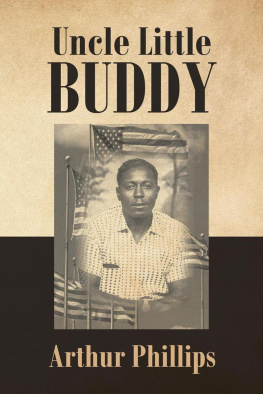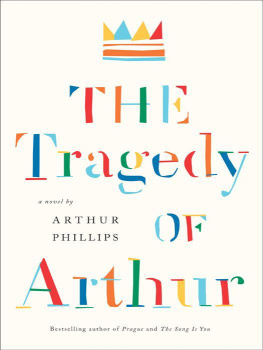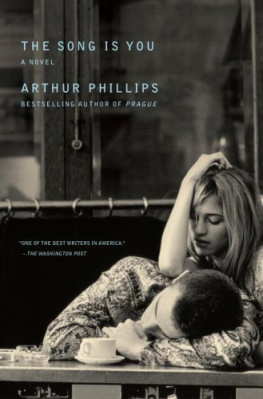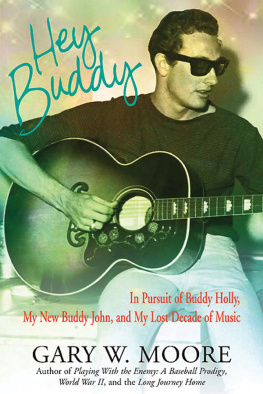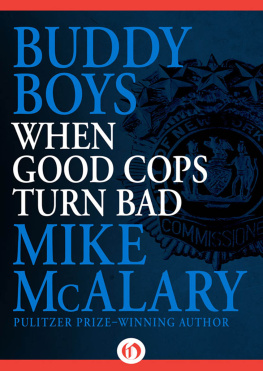Chapter One
Chapter One: The Beginning
A number of years ago, there was a TV show titled The Naked City . It always ended with this comment: There are eight million stories in the Naked City; you have just seen one of them. I have always wanted to leave something behind in writing or some type of media to let my children or whomever know what it was like when I was growing up in the 1940s and 1950s. A number of years ago, there was a Focus on the Family insert in our church bulletin. One of the articles in this insert was titled Preserving Your Family Heritage, by Dr. James Dobson. You can ask my wife or other close relatives, and they would say that I could have written this article. A portion of that article is quoted:
The lyrics of an African folk song say that when an old person dies, its as if a library has burned down. It is true. Theres a richness of family heritage in each persons life that will be lost if it isnt passed on to the next generation. The stories of your past, of your childhood, of the courtship with your spouse, and so on can be treasures to your children. Unless you share those experiences with them, that part of their history will be gone forever. Take the time to make yesterday come alive for the kids in your family.
My grandmother left hundreds of pictures without names or dates. Some people would mark a photo with a name Sally, age three, or Tom, sixth grade. What year was it when Sally was three: 1932, 1946, 1989? Or what year was it when Tom was in the sixth grade? Take the time to date and name photographs, events, news clippings, etc., when it first happens. Dont trust your memory until tomorrow.
Before the age of digital photos, we all had hard copies of photos stored in shoe boxes, albums, drawers, etc. I have thousands of photos in albums and another thousand or so in slides. I have all the albums numbered and a summary index of the people or places in the photos on my computer. All my photos are stored in a clothes closet near the entrance/exit of the house. My instructions to all our children are in the event of a fire, each person is to grab photo albums on their way out of the house. My second son, Elliot, was visiting us one day with one of Nebraskas assistant football coaches. I explained my system to Jimmy; a few days later, Elliot saw Jimmy at Walmart. Jimmy told Elliot, Your dad really made me think; I am here buying photo albums. I have since digitalized the important shots of the hard copies and slides. Of course, all digitals are backed up online. What we leave behind for the next generation is for that generation to decide what they will do with it. If they do nothing, then at least they will have passed it on. Was it important that someone left a note about George Washington chopping down a cherry tree?
In order to tell the story about Uncle Little Buddy, I have to tell the story of others as well, beginning with my life and my maternal grandparents. Any information about my paternal grandparents came from what my dad and/or his sister, Mittie, told me.
Chapter Two
Chapter Two: Growing up in Arkansas
Where I was born and grew up in Arkansas was almost like watching the chase in an old Western movie. If you pay close attention, you will notice some of the zigzags covered the same area that you saw a few zigzags ago. As I grew older, I was quite surprise to find out that those moves we made really didnt take us that far away, just a few miles to another cotton field. From 1941 to 1951, we moved approximately six times, and they all were within six to ten miles of each other. We were to make three more moves before I left Arkansas. The first one was to a farming community called 33 and the other two on the same plantation, less than a mile between all three houses. The last one was to the white house. I will explain more about this move later.
My father, Roy Phillips, along with his brother, Joe, and two sisters, Mittie and Pearle, was born to Lela Thomas (18861927) and her husband, near Alexandria, Louisiana. Mittie was born in 1912; Roy on January 30, 1913; and Joe and Pearle a couple of years later. Dad did not talk about a father or a stepfather. Either their parents divorced or the father died. I have heard it both ways. In any event, the kids were young when the father was no longer part of their lives. Mittie remembered the name real well, but unfortunately, she could not spell it and the pronunciation was very difficult to understand. It sounded like Donnell or Donald. I have a videotape of her trying to pronounce it so it could be understood. The Phillips name as it pertains to this family only goes back to about 1917 or 1918. Their mother married a man named Charley Phillips, who adopted her children. Or they were just given his name; thus, we became Phillips. Charley died in 1922.
The new Phillipss children left this world in reverse order in which they came. Pearle, the youngest, whom I never knew died first in the 1930s, then Joe in 1941, Roy in 1984, and then Mittie in 1996. To my knowledge, the sisters did not have any children. Joe had one daughter, named Ruby Jean. We knew Ruby very well. She even lived with us for a brief period. Ruby and my oldest sister Roberta did their part in increasing the Phillipss clan. They both had ten or twelve children each.
During his early years, Dad lived a rough life, according to the way he described his many adventures. He could do many different types of jobs, from plowing mules to driving eighteen wheelers. He would try just about anything, except trying to educate himself. Somewhere along the way, he did learn how to write his name. Watching The Fugitive on TV reminded me of my dad: He toiled at many jobs.
Mittie remembered that Dads name was not Roy, but James Leroy Phillips, but he did not like the James Lee, so somewhere along the way he became known as Roy. However, he named their oldest son James Lee. He talked a lot about his mother and the adventures they had growing up with her and her father, his grandfather. He couldnt sing, but he loved to try and sing that old hymn If I Could Hear My Mother Pray Again. I recall Dad telling us stories about his mom raising them, even how she shot a man one night who was stealing her chickens. She heard a noise in the chicken house. Thinking it was an animal, she grabbed her shotgun; and as she walked out of the house, the man took off running. She shot at the sound of his feet hitting the ground, wounding him, but not killing him. The next day she went to the boss mans house and told him what had happened. The man was found later and was severely admonished for trying to steal from the widow woman. There were other stories about his grandfather.
One particular story was how they had been scared by a possible attack from a panther. That same afternoon, his grandfather gathered supplies; mounted his horse, leading a packhorse; and took off in search of the panther. The next day his grandfather appeared with a long black dead panther draped over the packhorse. There were never any stories about a father or stepfather.
Dad told a lot of stories about his rambling from place to place, mostly traveling by hopping trains, hitchhiking, and working all kinds of jobs. This left very little time for any kind of formal schooling and/or training. Roy, Mittie, and Joe eventually settled in northeastern Arkansas, in and around St. Francis County. It is not known if their mother, Lela, and sister, Pearle, died while they lived in Louisiana. Joe married a lady, named Essie Richmond. As mentioned earlier, they had one daughter, Ruby Jean, born on December 6, 1939, and a son who died before he was one year old. Roy married Mozelle Williams. They had four children, James, Roberta, and a set of twins. Mozelle and the twins died in early 1937. The flood of 1937 in eastern Arkansas could have been a contributing factor to their death. April of that year, Roy married Alice McDonald, my mother. She was born on February 20, 1920. He was twenty-four, and she was seventeen. Daddy used to tell the story of how he and my mother eloped. He bought the marriage license on a Saturday and showed them to her at church that Sunday. The following Sunday she never returned home from church. Grandpa Willie was told whom they saw her leave church with. He got his shotgun and went looking, but luckily he never found them. After not finding them, it was said that he just blasted a few rounds in the nearby lake.


